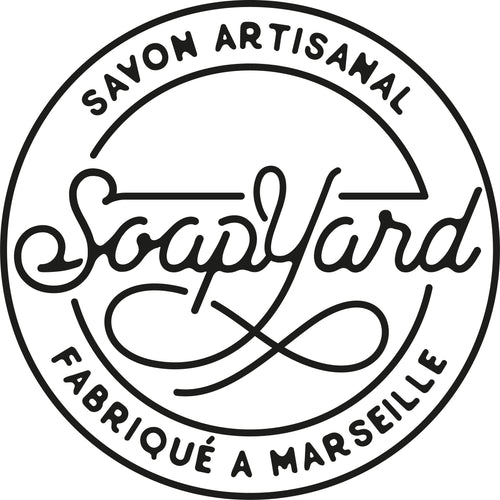Argan Oil: Morocco’s Liquid Gold and Its Cultural Tapestry
Argan oil, often referred to as "liquid gold," is one of Morocco’s most treasured exports. Known for its versatility and nourishing properties, this oil has deep roots in Moroccan culture and tradition. Beyond its beauty benefits, argan oil also offers a fascinating glimpse into the intersection of geography, history, and sustainable practices.
The Heart of Argan Oil: Essaouira and Its Goats in Trees
Nestled on Morocco's Atlantic coast, Essaouira is famous not only for its vibrant souks and windy beaches but also for its surrounding argan forests. These trees have become an iconic image of the region, partly due to the goats that climb their branches to feast on the fruit. This quirky phenomenon is both a tourist attraction and a testament to the adaptability of the local ecosystem.
Travel Tip: For visitors, guided tours to Essaouira often include stops at these argan groves, where you can photograph the goats and learn about traditional oil extraction methods.
How Argan Oil Is Made
Argan oil is extracted from the kernels of the argan fruit, a labor-intensive process typically carried out by women in cooperatives. The process begins with drying the fruit, removing the pulp, and cracking the nuts to access the kernels. The oil is then cold-pressed for cosmetic use or roasted for culinary purposes.
Differences in Uses:
- Cosmetic Argan Oil: Lightweight and packed with antioxidants, perfect for skincare and haircare.
- Edible Argan Oil: Roasting gives it a nutty flavor, making it a favorite for drizzling over couscous or dipping bread.
Women's Cooperatives: Empowerment or Exploitation?
Argan oil production has long been associated with women’s cooperatives, which aim to provide fair wages and economic independence for Moroccan women. However, not all cooperatives are created equal, and some exploit their workers by paying meager wages while reaping profits.
Key Facts:
- Workers in authentic cooperatives often earn around $8 to $12 per day, depending on the region.
- Some cooperatives offer tours where visitors can see the process, enjoy a traditional breakfast of bread, honey, and olive oil, and purchase products directly to support the workers.
Resources and Links:
- Argan Trees Cooperative: Provides tours and direct support for rural women.
- Maison de l’Argan: Offers educational insights and ethically sourced argan products.
Visiting Argan Oil Cooperatives
Organized trips to cooperatives are a unique way to experience Morocco's cultural heritage. Here’s what you can expect:
- Interactive Demonstrations: Learn how argan oil is traditionally made.
- Traditional Moroccan Breakfast: Fresh bread with honey, olive oil, and sometimes argan oil, served in a welcoming atmosphere.
- Shopping Opportunities: Support local women by purchasing authentic, handmade products.
Travel Tip: When visiting a cooperative, it's customary (but not mandatory) to buy a product as a way of supporting their work.
The Rise of Argan Oil: From Morocco to the World
Argan oil’s global success owes much to brands like Moroccanoil, co-founded by Israeli-American entrepreneur Carmen Tal. Inspired by the transformative effects of argan oil on her own hair, she created a brand that revolutionized haircare and introduced argan oil to a worldwide audience. Today, Moroccanoil sponsors major events like football tournaments, highlighting how traditional Moroccan practices have found a place in global luxury markets.
Argan Oil and SOAPYARD: A World Apart
While Moroccan argan oil embodies the warmth and richness of North African traditions, SOAPYARD’s French soaps bring a different cultural nuance to skincare. Crafted in Provence, SOAPYARD soaps feature argan oil in a triple-milled process that emphasizes luxury and sustainability.
Comparison Highlights:
- Climate: Morocco’s dry, sun-soaked terrain contrasts with Provence’s Mediterranean ambiance, influencing the ingredients used.
- Tradition: Both cultures value artisanal practices, yet the methods reflect their distinct histories.
For travelers exploring Morocco, taking a SOAPYARD bar with a travel tin ensures a touch of French elegance even in the bustling souks of Essaouira.
Practical Tips for Visiting Morocco
- Pack for the Climate: Layers are essential, especially in winter, when evenings can get chilly.
- Stay Hydrated: Moroccan heat demands ample hydration; carry a refillable water bottle.
- Travel-Friendly Essentials: SOAPYARD soaps with a travel tin are perfect for lightweight, eco-friendly packing.
- Learn Local Customs: Respect Moroccan traditions, like dressing modestly and negotiating prices in markets.
Cultural, Culinary, and Literary Delights
- Cultural Sites: The Medina of Essaouira, a UNESCO World Heritage site, is a must-visit.
- Cuisine: Savor tagines with argan oil or indulge in pastries drizzled with honey and nuts.
- Literary Gems: Explore Paul Bowles’ works, which capture the mystique of Morocco.
#ArganOil #MoroccanTraditions #WomenEmpowerment #SustainableBeauty #EssaouiraTravel #GoatsInTrees #EthicalTravel #SoapWithHistory #Soapyard #FrenchLuxury #CulturalExploration

